
The Lymphedema Treatment Act went into effect on Jan. 1, making prescribed lymphedema compression garments approved by Medicare Part B.

Brielle Benyon, Assistant Managing Editor for CURE®, has been with MJH Life Sciences since 2016. She has served as an editor on both CURE and its sister publication, Oncology Nursing News. Brielle is a graduate from The College of New Jersey. Outside of work, she enjoys spending time with family and friends, CrossFit and wishing she had the grace and confidence of her toddler-aged daughter.
Follow Brielle on Twitter @Brielle_Benyon.

The Lymphedema Treatment Act went into effect on Jan. 1, making prescribed lymphedema compression garments approved by Medicare Part B.

The novel drug, IDP-023, is being investigated in patients with relapsed or refractory non-Hodgkin lymphoma or multiple myeloma.

Although approximately one-third of patients were found to bypass their nearest hospital for breast cancer surgery, the decision to go further occurred more frequently in certain patient populations.

Last week, the FDA provided updates on two cancer therapies. In this episode, we discuss those decisions and more.

The FDA granted a Fast Track Designation to RC88, a novel antibody-drug conjugate, to treat patients with platinum-resistant gynecologic cancers.

The Food and Drug Administration approved Keytruda plus chemoradiotherapy for stage 3-4A cervical cancer.

From Michael Strahan announcing his cancer diagnosis to a “Baywatch” star being diagnosed with cancer, here’s what’s happening in the oncology space this week.

A phase 2 trial is evaluating ELI-002 7P, a novel cancer vaccine, for the treatment of patients with KRAS-mutant pancreatic cancer.

Certain groups of patients with breast cancer experienced a decrease in breast cancer-specific mortality after starting cholesterol-lowering drugs.

Children with cancer tended to feel less anxiety after undergoing four sessions of creative art therapy, recent research showed.

The Food and Drug Administration (FDA) will not be meeting the Jan. 12, 2024 approval deadline for zolbetuximab to treat certain patients with gastric or gastroesophageal junction adenocarcinoma.
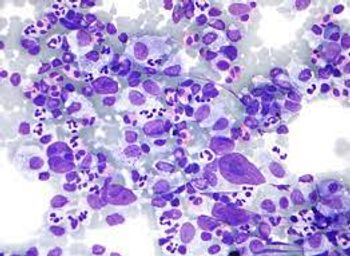
A small study of iopofosine I 131 in patients with pretreated Waldenstrom’s macroglobulinemia showed that the disease control rate was 100%.
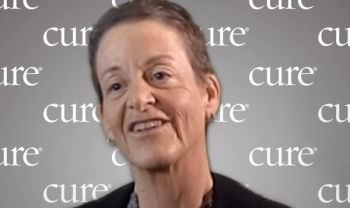
More facilitation is needed to ensure that clinicians can connect patients with breast cancer to clinical trials they may be eligible for.

Next-generation sequencing was more successful in finding patients with endometrial and colorectal cancer with dMMR disease, indicating that they were eligible for immunotherapy.

The year 2024 is now underway. After a busy 2023, we’re now looking back at some of the oncology headlines from the new year.
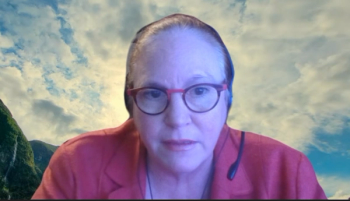
An expert stressed the importance of finding a patient support group and asking questions after being diagnosed with kidney — or any other form — of cancer.

A novel antibody drug conjugate was granted a Fast Track designation for certain patients with ovarian cancer.

An expert discusses three crucial conversations about cancer care that patients should have with their health care providers.

The Food and Drug Administration approved Udenyca Onbody, an administration device for Udenyca, a biosimilar of Neulasta.

The Food and Drug Administration stopped enrollment on a clinical trial evaluating LN-145 TIL for non-small cell lung cancer after a patient on the trial died.

From Jimmy Buffett's death to the chemo shortage and cannabis use in cancer care, here is a look back at some of our most popular oncology stories from 2023.

Thomas Silver discusses how a community of support helped a patient when his bone marrow transplant was delayed.
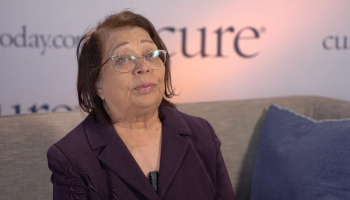
A doctor reflected on what it was like treating patients with myeloproliferative neoplasms years ago and how much treatments have improved.

The use of telemedicine over in-person oncology visits did not lead to a decrease in advance care planning or an increase in unplanned hospital visits.
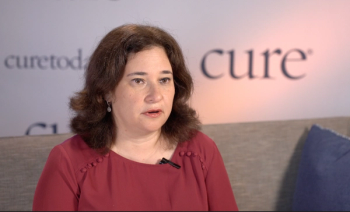
New treatments and ongoing trials are providing more options and better outcomes for patients with myeloproliferative neoplasms, an expert explained.
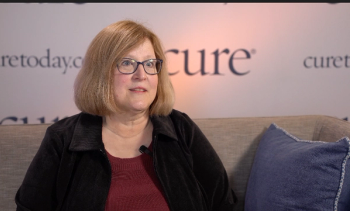
After being diagnosed with essential thrombocythemia, Marilyn Kay Edwards was not told much about her disease.

For patients with myeloproliferative neoplasms, it is essential to have an open relationship with oncology nurses, an expert explained.

Patients with Down syndrome and B-cell acute lymphoblastic leukemia tended to have higher rates of treatment-related deaths and poorer overall survival than those without Down syndrome.

The Food and Drug Administration recently approved treatment for some patients with neuroblastoma, kidney cancer and bladder cancer. Elsewhere, a cancer vaccine made headlines for the treatment of patients with melanoma.

The use best use of opioids or NSAIDS may vary based on the type of pain patients with cancer are experiencing, recent research found.